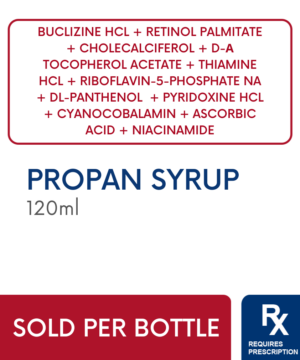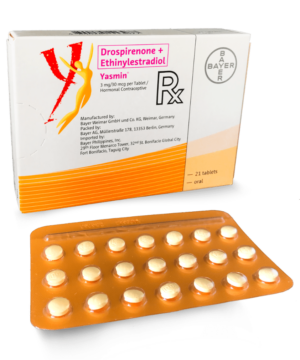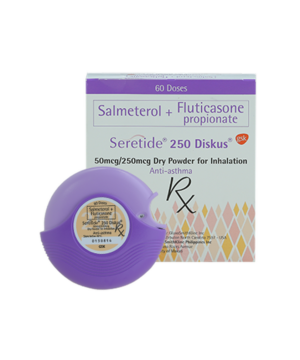Description
KARDIOSTAN 50MG FC TABLET
Indications / Uses : Used in the management of hypertension especially in patients who, upon administration of ACE inhibitors, develop cough as an adverse event. Losartan reduces the risk of cardiovascular morbidity and mortality, including stroke and myocardial infarction in patients with left ventricular hypertrophy and offers renal protection in patients with diabetic nephropathy. The 7th Report on the Joint National Commission (JNC 7) on prevention, detection, evaluation and treatment of high blood pressure in the United States prefers thiazide diuretics as initial therapy for hypertension, but when a diuretic cannot be used or a compelling indication is present (ie, cough developed from the use of ACE inhibitors), losartan may be given as initial therapy.
Administration :
May be taken with or without food.
Contraindications : Pregnancy and hypersensitivity to losartan and any component of Kardiostan.
Use in pregnancy: Use of losartan during the 2nd and 3rd trimester of pregnancy may cause low blood pressure or severe kidney failure and is harmful, if not fatal to the fetus or infant. A case of oligohydramnios (decreased amniotic fluid), fetal effects and subsequent fetal death were reported in a patient exposed to losartan during 20-31 weeks of pregnancy. Treatment with losartan should be discontinued with the 1st sign of pregnancy.
Special Precautions : Monitoring of Blood Chemistry: Orthostatic hypotension may develop with the use of losartan in patients with volume depletion. Volume depletion should then be corrected before the start of treatment with losartan. A low initial dose of Kardiostan is therefore recommended.
The level of serum potassium and creatinine must be monitored at least once or twice a year. If blood pressure of the patient has already been stabilized, follow-up visits can be done at 3-6 months interval.
Patients with Renal Impairment: Lowering of the dose is necessary for patients with impaired renal function who exhibit electrolyte imbalance and are intravascularly volume depleted. Risk of hyperkalemia accompanies treatment with losartan. Thus, serum potassium concentrations should be monitored especially in elderly patients with renal impairment (see Dosage & Administration).
Losartan should be used with caution in patients diagnosed to have renal artery stenosis.
Patients with Hepatic Impairment: Low dose of losartan should be given to patients with hepatic disease as this may delay the excretion of Kardiostan from the body (see Dosage & Administration).
Use in lactation: The excretion of losartan in breast milk has not yet been established. In a study done in animals, losartan was found to pass into the milk of lactating rats. Thus, caution should be taken when administering Kardiostan to lactating mothers.
Use in children: The use of losartan in children <6 years with creatinine clearance <30 mL/min/1.73 m2 has not yet been established.
Use in the elderly: Adjustment of losartan doses is not necessary except for elderly patients with hepatic insufficiency.
Elderly patients with renal malfunctions should be monitored for serum potassium levels as treatment with losartan may cause hyperkalemia (see Dosage & Administration).














Reviews
There are no reviews yet.